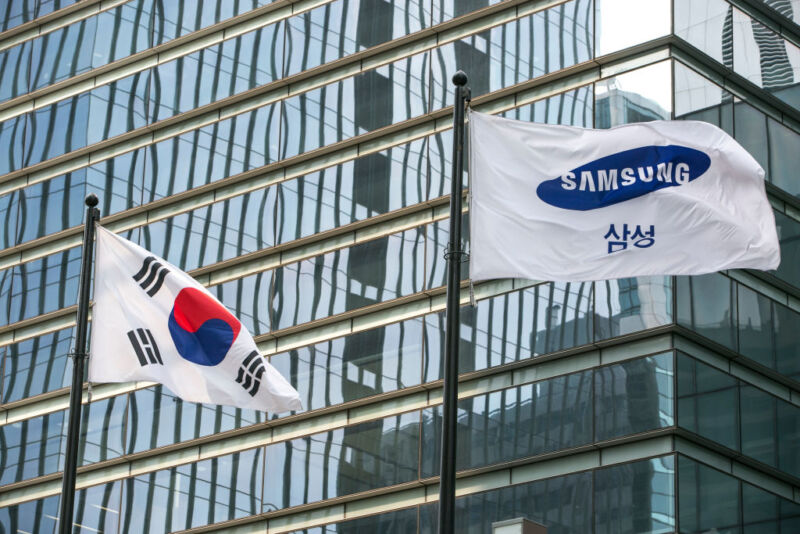
A former executive at Samsung Electronics has been arrested and indicted in South Korea for allegedly stealing the leading chipmaker’s technology in order to build a copycat plant in China.
The indictment of the 65-year-old Korean national, who had also served as a vice president at rival Korean chipmaker SK Hynix, comes as South Korea attempts to beef up its defenses against a concerted campaign by Chinese companies to acquire cutting-edge Korean technologies.
According to a statement released by Korean prosecutors on Monday, the former Samsung vice president, who has not been named, illegally acquired information needed to build advanced chipmaking facilities.
His plan, said prosecutors, was to replicate a semiconductor factory just 1.5 km away from Samsung’s memory chip plant in Xi’an in western China.
“This is not a simple semiconductor tech leak but an attempt to copy a whole chip plant,” the Suwon District Prosecutors’ Office said in a statement.
“The scope of the crime and damage are incomparable to previous individual tech leak cases,” the statement added. “If the domestic plant were copied and similar quality of products were mass-produced in China, it would have caused irrecoverable losses to the [Korean] semiconductor industry.”
The former executive hired about 200 employees from Samsung and SK Hynix for a company he established in Chengdu in China’s Sichuan province. They were allegedly tasked with acquiring trade secrets from their former employers, costing Samsung an estimated $230 million, according to the indictment.
“Samsung strictly forbids outsiders from entering its chip plants because the factory design and its equipment layout are closely related to productivity and product quality,” said Lee Dong-hwan, a former state investigator now working as a patent attorney at WeFocus, a Seoul-based law firm.
“But there is no way for the company, despite its strong security systems, to prevent tech leaks if a senior executive with good access to broad and high-quality information intentionally gives it out to Chinese competitors,” he added.
Samsung Electronics and SK Hynix, two of the world’s leading memory chipmakers, both have plants in China. Their technologies are regarded by industry experts as more advanced than those of their leading Chinese competitors.
Last year, the US government gave the Korean companies a one-year reprieve from export controls that were designed to reduce China’s ability to develop high-end chips. The FT reported last month that Washington had signaled it would extend permission for them to send US chipmaking tools to China for at least another year.
Among the trade secrets the former executive is alleged to have stolen was information relating to keeping impurities out of advanced chip plants, and the floor plans and dimensions necessary for several processes in advanced chipmaking technologies.
But his plan fell apart after he failed to secure a $6.2 billion investment allegedly promised by an unnamed Taiwanese company for a company he established in Singapore.
Instead, he raised just over $350 million from Chinese investors to produce trial products from a plant in Chengdu. According to prosecutors, the Chengdu plant’s construction was also based on technology stolen from Samsung.
Six other people were also indicted on Monday as part of the same case, including the employee of a Samsung subcontractor and five employees of the executive’s Chinese chipmaking company.
As tech competition between the US and China intensifies, Chinese companies have stepped up efforts to acquire Korean expertise in critical technologies ranging from semiconductors to electric car batteries and in industries including displays and shipbuilding.
In February, seven people, including former employees of Semes, a subsidiary of Samsung Electronics specializing in the production of wafer cleaning equipment, were given prison sentences for transferring stolen technologies to a Chinese company.
The South Korea government has also established several new investigatory bodies to combat the leaks, passed legislation to toughen punishments, and made it easier to report suspected violations.
© 2023 The Financial Times Ltd. All rights reserved. Not to be redistributed, copied, or modified in any way.
Reader Comments (54)
View comments on forumLoading comments...